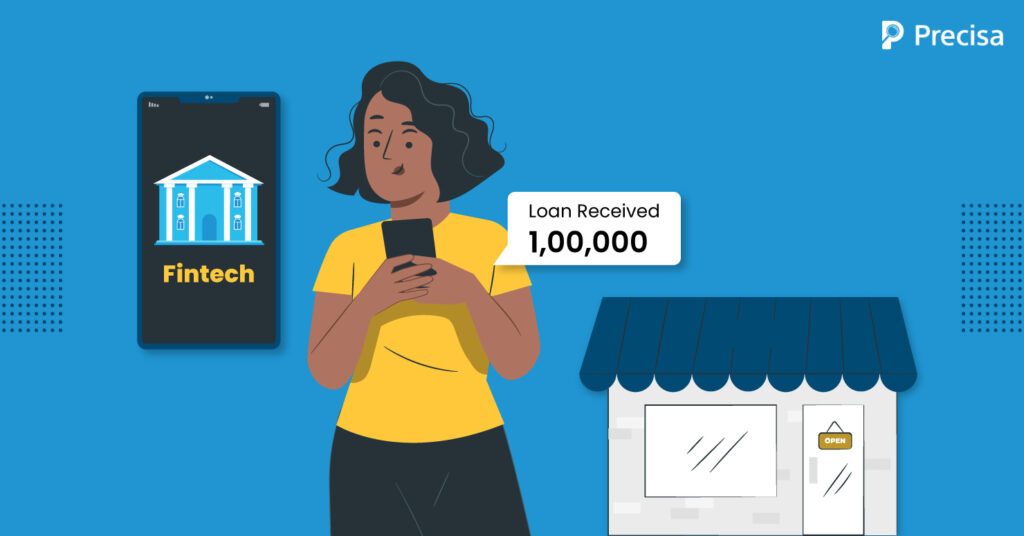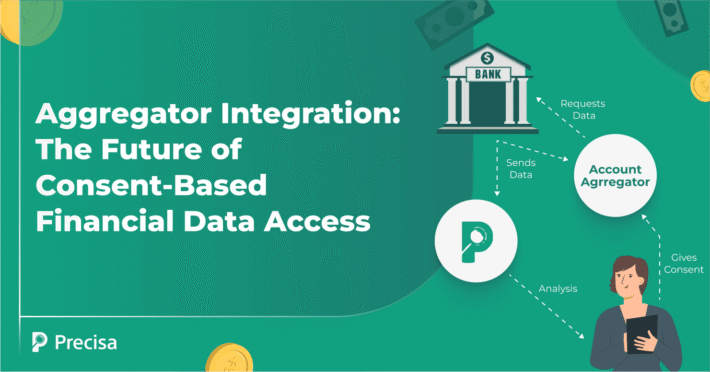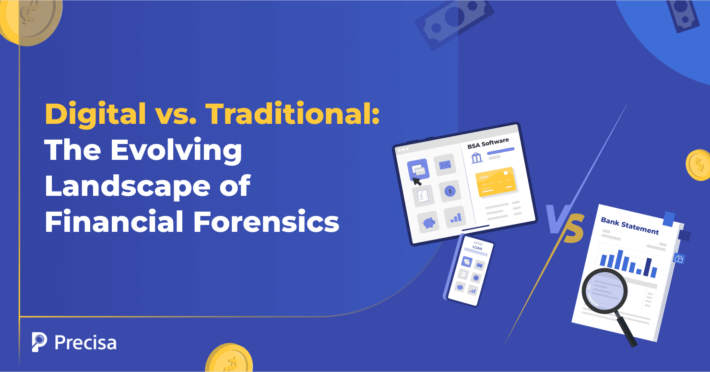The Impact of Fintech Companies on Small Business Financing

The last five years have witnessed a significant rise in the market share of fintech companies.
For instance, the global fintech lending market size alone was estimated to be valued at $449.89 billion. By 2030, it is projected to rise to $ 4957 billion, growing at a CAGR of 27.4%.
Small businesses, in particular, are leveraging the products and services of fintech companies to solve everyday challenges, especially in small business financing.
The use of technologies such as artificial intelligence (AI), blockchain, application programming interfaces (APIs), and data analytics software is helping to expedite the small business financing process.
In this blog, we delve into the critical challenges small businesses face in business financing and how innovative solutions delivered by fintech companies drive a positive outcome.
Key Challenges in Small Business Financing
Here is a snapshot of typical challenges faced by small businesses for decades:
Lack of Access to Capital and Credit
The traditional banking system is often aloof to small businesses, leaving them out of the financing ecosystem. Due to their low-risk tolerance, banks have been averse to offering credit and capital opportunities to small businesses. Hence, small businesses tend to be underfunded.
Poor Cash Flow Management
Small businesses often struggle with inconsistent or limited cash flow, which does not serve them during loan applications or investor pitches.
For instance, one reason for poor cash flows is the inability to accept payments from customers looking to pay using multiple modes of payment.
Lack of Efficiency
Using manual processes in many functions results in data duplication, incomplete data, and errors. Hence, small businesses may be unable to provide enough data for the credit appraisal processes during loan applications and financing opportunities.
Exploring the 6 Major Impacts of Fintech Companies
Here is a snapshot of how fintech companies are addressing common challenges faced in small business financing:
1. Quicker Loan Approvals
Small businesses have access to digital lending powered by fintech companies through which they can apply for loans online.
They can also expect a quicker turnaround on the credit appraisal process because innovation in financial analysis software by fintech companies has automated the process.
As a result, it has brought efficiency, transparency, and accountability to this important step in the loan application process. Lenders can review loan applications faster and scale their loan approval process.
2. Data-Driven Risk Assessments
Many small businesses need to assess the risk factors when making critical decisions. These can include taking a loan, accepting capital from an investor in exchange for equity, or merging with a larger company. These various scenarios bring with them significant benefits but also significant risks.
Products by fintech companies come with robust data management capabilities. Users of the software can customise dashboards and get access to valuable data insights. They can also scrutinise numbers and help leverage data instead of intuition to make decisions with a long-term impact.
3. Higher Efficiency and Transparency
Necessary finance-related functions such as bookkeeping are now automated. Small businesses can leverage software and platforms developed by fintech companies to bring efficiency and transparency to all processes.
Transaction data and other information can be accessed online in real time, and instant updates can be activated. All data can be centralised, and duplication can be prevented.
Other key benefits of automation include cost savings on human capital, improved collaborations, and access to critical data required during any financing opportunity.
4. Enhanced Cash Flows
Businesses that maintain a healthy cash flow are more likely to get access to credit and capital. This is an important metric in assessing the credits of a business by lenders and investors. Delayed and missed payments can drive negative cash flows.
The introduction of digital payments enables small businesses to receive instant, secure and transparent payments anytime and anywhere. Moreover, they can offer customers the power of choice with multiple payment modes and run subscription services efficiently.
5. Credit Access Via Peer-To-Peer (P2P) Lending
Another bold innovation by fintech companies is the concept of peer-to-peer lending. This is a direct lending format where businesses and individuals do the lending without the involvement of any financial institution.
Launching well-designed online platforms enables seamless and efficient processes and swift transactions.
As of January 2022, 25 registered non-banking financial companies (NBFC) were approved by the Reserve Bank of India (RBI) to run peer-to-peer (P2P) lending platforms.
The P2P model is a win-win format because it fuels small business financing. On the other hand, individual and business lenders can earn interest on any extra capital.
6. Capital Access Via The Crowdfunding Model
This is another model fuelled by fintech companies, which has helped early-stage startups and small businesses raise capital.
According to this survey, as early as 2013, 35% of small businesses could not access capital through traditional methods such as venture capital funding, credit, and borrowing from friends and family.
With the arrival and adoption of fintech companies, small businesses turned to crowdfund and successfully raised capital for their needs.
In 2022, a Kickstarter crowdfunding project raised funds to the tune of $ 42 billion. The slick and innovative design of fintech crowdfunding platforms has made it easy for small businesses to launch campaigns and raise capital.
The Takeaway
Today, many fintech companies are driving small business financing through various models. They are fuelling the growth of small businesses, enabling them to expand faster and get more ambitious in their business goals.
For instance, innovations in tech-enabled financial data analysis solutions by fintech companies are powering cost-effective, accurate risk assessment and quicker turnaround on loan applications and for small businesses.
In turn, small businesses can access credit and capital, which helps them scale faster.
Presica’s comprehensive and seamless financial data analysis solution simplifies and speeds up the process through automation.
The software provides actionable insights on a customisable dashboard, thus helping companies make informed business decisions.
Request a free demo today!




